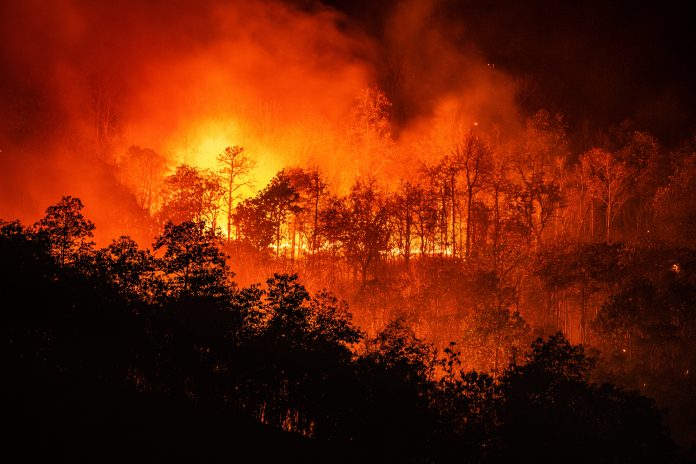Stefano Mallia, President of the Employers’ Group and rapporteur for the EESC opinion on EU Climate Diplomacy, says climate diplomacy is “preventive diplomacy” and should be the top priority in the EU’s foreign policy
Wildfires have raged across several countries in southern Europe this summer, destroying homes and coastal resorts and turning vast forest areas into blackened wastelands, while floods have hit Slovenia, also causing death and devastation.
Climate events are not a new phenomenon in Europe, but heatwaves, floods, droughts and wildfires, and the rise of climate-sensitive diseases, like dengue fever, have intensified in Europe and elsewhere. There is no doubt that climate change is making these phenomena more frequent and extreme.
Climate change efforts in Europe
With the COVID-19 pandemic, the war in Ukraine and the subsequent energy crisis, efforts to tackle climate change and embark on a genuine green transition in Europe have been somewhat hampered.
Some Member States have adopted several measures which are de facto delaying the phasing out of fossil fuel extraction operations or are even investing in new operations of this type to meet their energy needs.
Such behaviour sends confusing messages to our EU citizens and third countries, which could justify delays in their transitions. This could clearly jeopardise this year’s COP28 summit, where countries are meant to reach a deal to phase out CO2-emitting fossil fuels use – for coal, as agreed at previous UN climate talks, plus oil and gas.
This is why the EU must maintain a coherent and consistent approach to climate policy. We cannot preach well and practice poorly. Recently, the EU has intensified its work on climate diplomacy, the success of which greatly relies on internal climate policy decisions taken by the EU, but also on the effective implementation of the European Green Deal (EGD), encouraging Member States to align foreign affairs with climate imperatives and the EGD’s goals.
Indeed, to maintain credibility, the EU must establish ambitious targets and effectively achieve them, not just alone but with other nations, while sharing best practices and experiences across all sectors. It is crucial to acknowledge that, even if current goals are met, the EU is falling short of the necessary measures to remain within 1.5°C.
Adjust EU climate diplomacy
This is why, despite the acceleration of the new geopolitical challenges, the EU must have a deeper insight into the geopolitical aspects of the EGD and the potential risks and opportunities. That calls for a fresh, robust and credible strategic plan to adjust EU climate diplomacy to the current geopolitical landscape.
This strategy should set out both short and long-term priorities and concrete activities for various EU actors to integrate climate action into all areas of foreign relations, including security and defence, trade, investment, transport, migration, development cooperation, financial and technical assistance, health and, finally, culture.
By adopting this comprehensive and strategic approach, the EU can foster an environment of authentic collaboration, strengthening global efforts to combat climate change and effectively meet its urgent challenges.
Addressing climate-related risks
Where do we start? At the European Economic and Social Committee, we should enrich the climate diplomacy toolbox with initiatives aiming not only to raise climate ambitions but also to share the EU’s experience and address climate-related risks.
The EU can share with other countries its expertise and knowledge in reducing carbon emissions, including the emissions trading system (ETS) and energy efficiency technologies, and recognise the critical role that renewables have played in improving energy security. It can also show how significant the economic benefits of a climate transition can be. Aligning diplomatic efforts with sound science enables informed decision-making and bolsters the credibility and effectiveness of the EU’s climate actions on the global stage.
Not all countries have the financial and technological capacities or the necessary capacity building to follow the same path. The EU should spearhead and develop infrastructure, finance and governance pathways by mobilising public and private financial sources to assist partner and neighbouring countries in managing the impact of the EGD, fostering their economic diversification, shaping just transition plans and supporting adaptation and risk management projects to prevent and reduce climate fragility risks.
To that end, making financial flows consistent with the goals of the Paris Agreement is paramount. In this context, EU climate diplomacy should encourage decisive steps toward international financial institutions’ essential transformation and reform.
Climate diplomacy is preventive
Last but not least, to operationalise climate diplomacy, we should take advantage of its multilevel nature, which refers not only to its traditional state-to-state diplomacy but also to the involvement of other diplomatic actors such as civil society, regions, cities, businesses, unions, academia and scientific experts. These can be agents of change for a genuine climate transition. The creation of a Civil Society Diplomacy Network could be a starting point.
As we move forward, there is no time to waste if we want to avoid irreparable damage. Climate diplomacy is preventive diplomacy. This is why there is clearly an urgent need to upgrade climate diplomacy, making it the flagship action of the EU’s external affairs and foreign policy.











